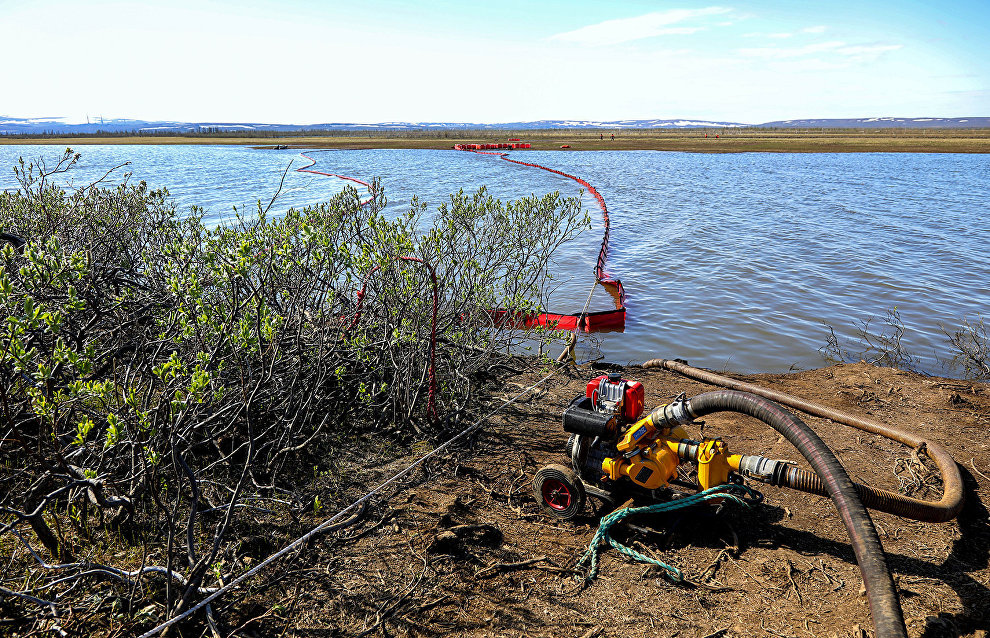Krasnoyarsk scientists develop sorbent for removing Norilsk fuel slicks
Scientists from the Faculty of Chemical Timber Technology and Bioengineering at Reshetnev University have developed a unique sorbent that can rescue the Arctic and Taimyr ecosystems.
The new sorbent is a porous polymer material with a high absorbing capacity. It includes oil-oxidizing microorganisms, obtained from polluted soils, that can decompose oil. The sorbent ties petroleum, and the microorganisms start reproducing intensively and feeding on the petroleum and the sorbent's organic substance.
According to the developers, the bio-sorbent is really unique because it does not have to be collected and recycled. It decomposes together with the oil and then resurrects vegetation in polluted vicinities.
"The use of eco-sorbents in the Arctic and the Taimyr Peninsula can rescue the entire ecosystem. By applying them there's a chance to minimize environmental damage and to speedily remove petroleum from the ground as well as water surfaces. These technologies are based on natural processes of the environment's self-restoration and self-purification," the university press service reports.
Press service officials also added that the sorbent prevented soil erosion, expedited the growth of vegetation, improved the phytosanitary state of polluted areas and was completely environmentally friendly.
On May 29, a diesel fuel reservoir of Thermal Power Plant No. 3, affiliated with NTEK of Norilsk Nickel Group, was damaged after the subsidence of the supporting structures of its foundation, and about 21,000 cubic meters of fuel spilled out. Norilsk Nickel sources believe that the accident was caused by permafrost thawing. A federal-level state of emergency was declared in the Krasnoyarsk Territory. On June 5, the Ministry for Civil Defense, Emergencies and Disaster Relief reported that the fuel slicks had been contained.
